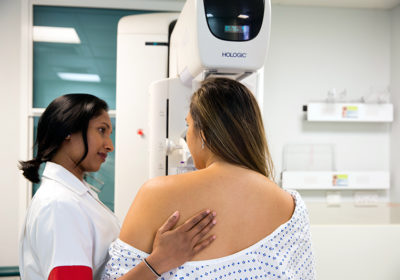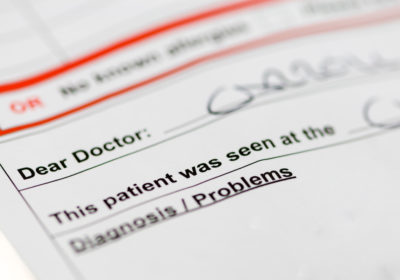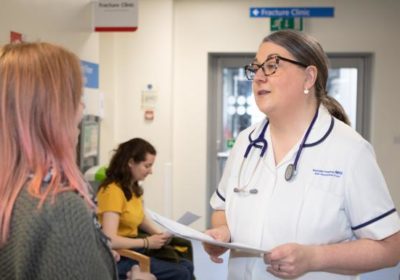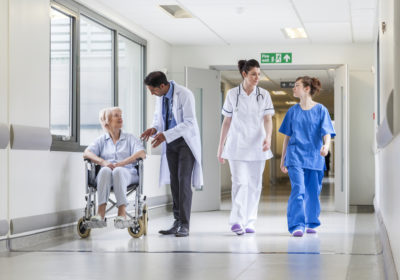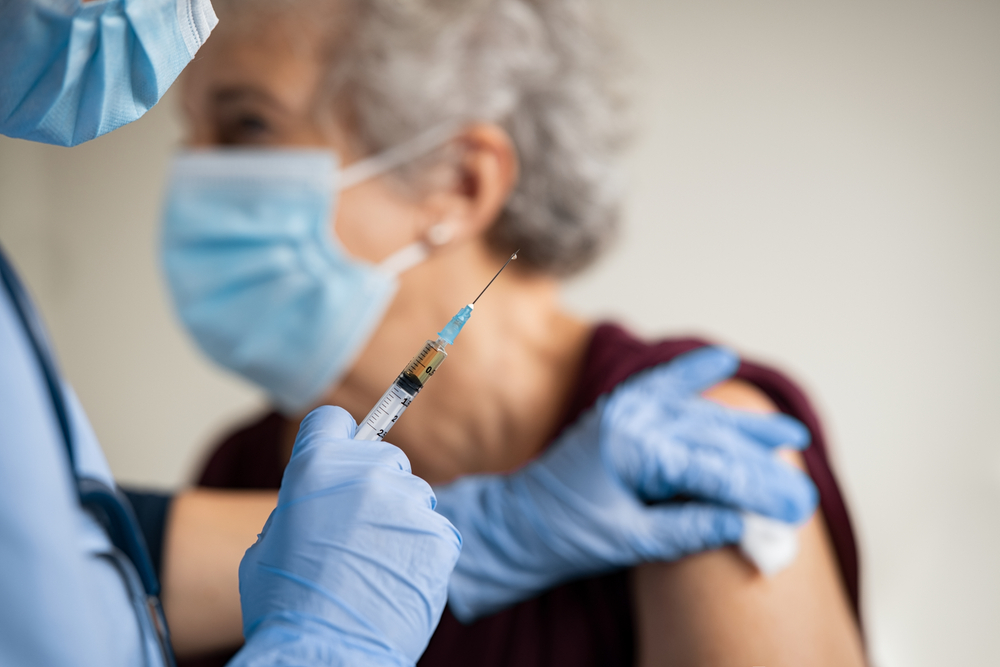 People aged 75 years and older, residents in care homes for older people, and those aged 12 years and over with a weakened immune system will be offered a spring booster of coronavirus (COVID-19) vaccine.
People aged 75 years and older, residents in care homes for older people, and those aged 12 years and over with a weakened immune system will be offered a spring booster of coronavirus (COVID-19) vaccine.
Appointments will be available from the National Booking Service shortly; those eligible will be contacted by the NHS when they are due a spring booster.
Who is being offered a spring booster?
COVID-19 is more serious in older people and those with a weakened immune system. Protection from the vaccine may be lower and may decline more quickly in these people.
For this reason people aged 75 years and over, those in care homes and those aged 12 years and over with a weakened immune system are being offered the spring booster.
Although vaccines are expected to provide good protection against severe COVID-19 disease, protection against mild infection with the Omicron variant seems to decline quickly, even after the booster dose.
This spring booster is being offered as a precaution to those at extremely high risk, most of whom received their first booster around 6 months ago. If the number of infections increases over
the summer, this booster should help to reduce your risk of being admitted to hospital with COVID-19.
Timing of the spring booster
You should be offered an appointment around six months (and not before three months) since your last dose of vaccine.
Which vaccine will you be offered?
You will be given a booster dose of either Pfizer or Moderna vaccine*. Both vaccines boost well and have already been given to millions of people in the UK. Studies have shown that you only need a half dose of Moderna to boost the immune system well. This half dose of Moderna is expected to have a low rate of side effects including myocarditis. You will be offered the right vaccine for you, which may be the same or different from the vaccines that you had before.
Who cannot take up the offer of a spring booster
There are very few people who should not have this booster. If you have had a severe reaction to a previous dose of the vaccine you should discuss this with your doctor.
Can you still catch COVID-19 after having the vaccine?
The COVID-19 vaccination will reduce the chance of you suffering from COVID-19. It may take a few days for your body to build up some protection from the booster. Like all medicines, no vaccine is completely effective – some people may still get COVID-19 despite having a vaccination, but this should be less severe.
If you have not had all your vaccinations
If you have not yet had either of your first two doses of the vaccine or third dose (for those with weakened immune system) you should have them as soon as possible. If you missed your first booster you should have this spring booster as soon as possible. You may need another booster as well as your usual flu injection in the autumn.
If you have a COVID-19 positive result, when can you have a spring booster?
If you are unwell, wait until you have recovered to have your vaccine. If you have had confirmed COVID-19 you should ideally wait four weeks before having your spring booster. You should not attend a vaccine appointment if you are self-isolating or waiting for a COVID-19 test.
For further information visit coronavirus booster vaccination or download the information leaflet below.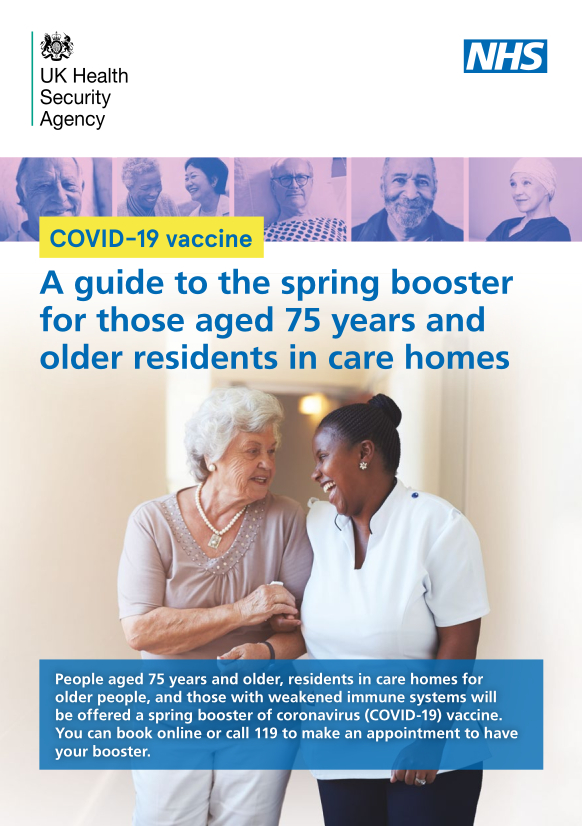 UKHSA-12308-COVID-19-spring-booster-guide-for-over-75s-v2 (1)
UKHSA-12308-COVID-19-spring-booster-guide-for-over-75s-v2 (1)
* For a very small number of people another vaccine product may be advised by their doctor


